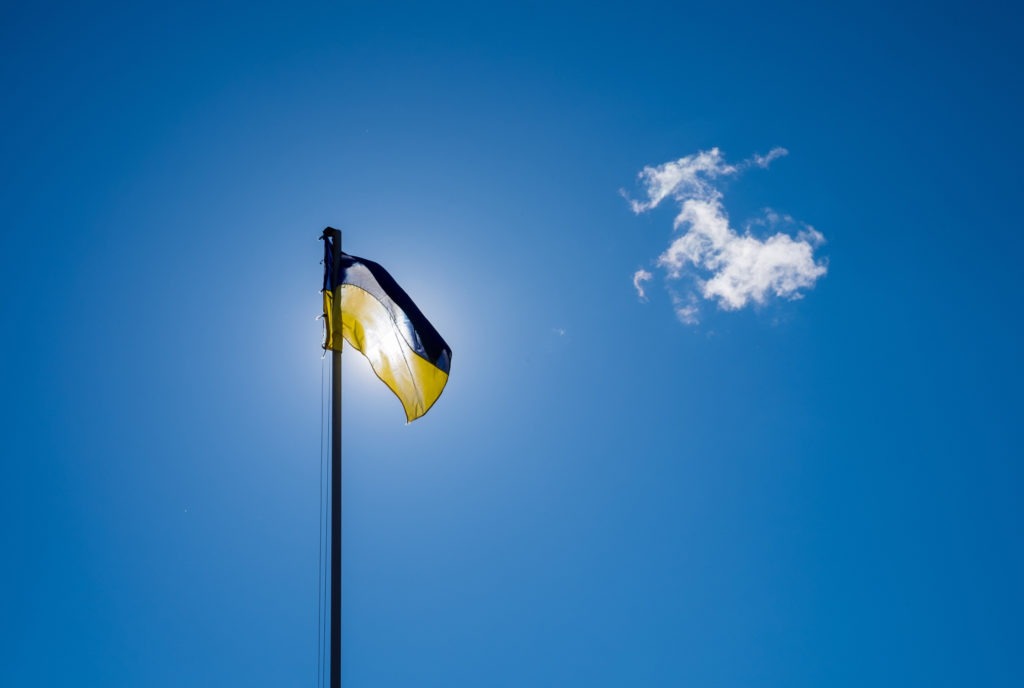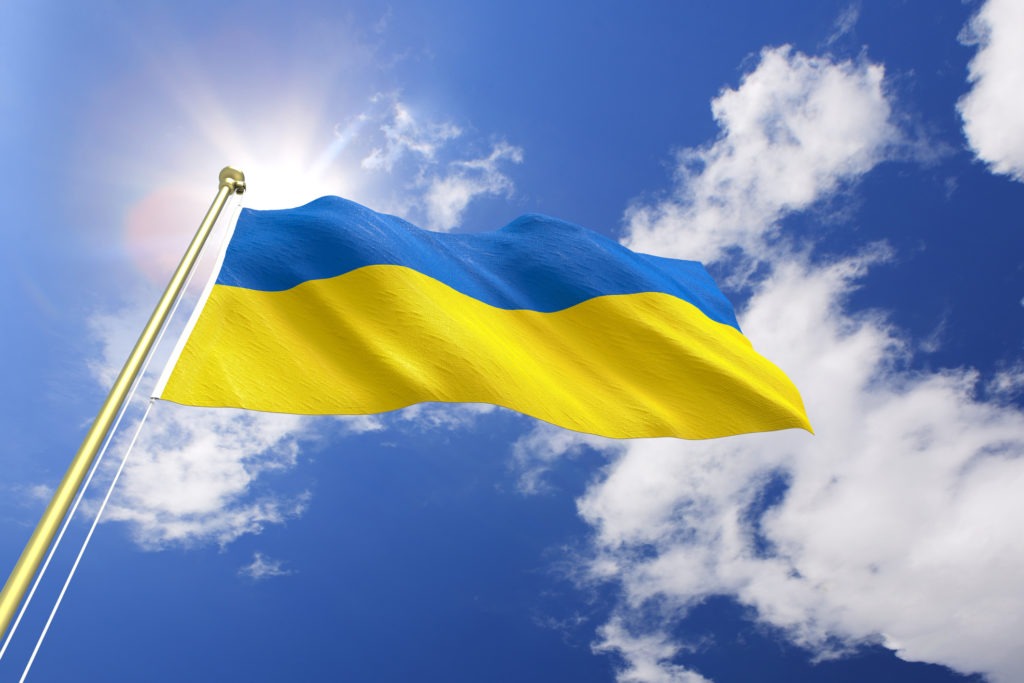More carmakers pull out of Russia as vehicle production halts
10 March 2022

The conflict in Ukraine is entering its third week and is continuing to disrupt the European automotive industry. Russia’s aggression has led to severe sanctions being imposed upon the country, with carmakers disassociating themselves from the market, or risk a heavy reputational impact.
Supply chains are being seriously affected, hampering the manufacturing efforts of automotive companies. International consumer brands from multiple markets are also suspending sales and exports to Russia, and the vehicle industry is no exception. There are also further promises of donations to humanitarian relief efforts.
Brands pull out of Russia
Since the start of the conflict, numerous automotive companies have pulled out of the Russian market, not wanting to be associated with the country as it continues its aggression. The latest businesses to announce the suspension of activities include supercar manufacturers Ferrari and Lamborghini, and energy-provider Shell.
‘Automobili Lamborghini is deeply saddened by the events in Ukraine and observes the situation with grave concern,’ the carmaker said. ‘In light of the current situation, business with Russia has been put on hold. Lamborghini hopes for a swift end of the hostilities and a return to diplomacy.’
Lamborghini is also preparing a donation to UN Refugee Aid (UNHCR). This is a long-standing partner of the carmaker’s parent company Volkswagen (VW) Group, delivering crucial and practical support on the ground.
Ferrari is also making a donation to support Ukrainians in need. The funds will be channelled through the Emilia-Romagna region that, in collaboration with the Red Cross and UNHCR, will fund international humanitarian projects supporting Ukraine. It will also help local initiatives focus on the reception of refugees.
‘Ferrari stands alongside everyone in Ukraine affected by this ongoing humanitarian crisis,’ stated CEO, Benedetto Vigna. ’While we hope for a rapid return to dialogue and a peaceful solution, we cannot remain indifferent to the suffering of everyone affected. Our thoughts and support go out to them. We are playing our small part alongside the institutions that are bringing immediate relief to this situation.’
Shell changes direction on Russian supplies
Shell came under fire recently for purchasing a cargo of Russian crude oil to be refined into petrol and diesel. The company has since said this decision was ‘not the right one’ and has apologised. Shell CEO Ben van Beurden also stated that profits from the limited remaining amounts of Russian oil will be given to a dedicated fund.
‘We will work with aid partners and humanitarian agencies over the coming days and weeks to determine where the monies from this fund are best placed to alleviate the terrible consequences that this war is having on the people of Ukraine,’ he added.
The oil and energy producer will withdraw from its involvement in all Russian hydrocarbons, including crude oil, petroleum products, gas and liquefied natural gas (LNG) in a phased manner, including an immediate end to spot purchases of crude oil from the country. It will also shut its service stations, aviation fuels and lubricants operations in Russia.
Brent crude oil price per barrel – March 2017 – March 2022

Oil prices have spiked dramatically since the conflict began, as businesses look to reduce reliance on the Russian market. ‘These societal challenges highlight the dilemma between putting pressure on the Russian government over its atrocities in Ukraine and ensuring stable, secure energy supplies across Europe,’ said van Beurden. ‘But ultimately, it is for governments to decide on the incredibly difficult trade-offs that must be made during the war in Ukraine. We will continue to work with them to help manage the potential impacts on the security of energy supplies, particularly in Europe.’
Manufacturing stops as supplies slow
BMW announced last week that its Mini brand would be stopping production at its Oxford plant until 11 March. The company has now extended this shutdown to 18 March, according to Fleet News. The continued issues surrounding semiconductor supplies have been hampering the manufacturer for some time, but shortages of other components are now biting. The carmaker is likely using the shutdown to secure supplies from markets other than Ukraine.
Porsche has also been forced to temporarily stop production of its Taycan electric vehicle (EV) in its Stuttgart plant due to missing components. Automobilewoche reports that the carmaker will not restart its manufacturing lines until the end of next week. However, its Leipzig plant, which was also recently shut down, will start production again in the coming days, albeit with reduced operation.
In the truck market, Traton Group brands Scania and MAN Truck & Bus are to immediately ramp down production and sale of vehicles in Russia until further notice. ‘The Traton Group’s values of democracy, free trade, and human rights guide us in being a responsible company. Respect for the individual is never compatible with resorting to violence. This is why we categorically condemn Russia’s invasion of Ukraine,’ the company stated.
Problems ahead for EV production?
Carmakers are monitoring the increasing price of metals crucial in the manufacturing of vehicles. Earlier this week, aluminium and palladium both hit records highs, according to Reuters, while nickel crossed the $100,000 (€91,000)-a-tonne price level for the first time ever.
This price increase will mean higher costs for carmakers as they look to source supplies to cover those lost imports from Russia. ‘We have an escalation of the cost that comes from raw materials and energy that is going to put more pressure on the business model,’ Stellantis CEO Carlos Tavares is reported by Reuters as saying.
There could also be problems with EV battery manufacturing and therefore the availability of electric cars themselves. Market research agency Achilles believes that the rising price of nickel, together with a shortage of raw materials, such as tin, a key component of circuit boards; molybdenum, a trace mineral used in new applications powering EVs; and other materials such as nickel, zinc, copper, oil and gas, are expected to impact downstream global supply chains and hamper global trade.
This could mean around 20 million EVs taken out of production between 2022 and 2029, according to the company.
‘Supply chain data emerging from Q4 2021 was already indicating that 2022 would be a rocky road for global supply chains, and now with the additional conflict in Ukraine, the outlook is extremely concerning,’ said Katie Tamblin, author of the report and chief product officer at Achilles.
‘The Achilles Supply Chain Resilience Index has, throughout the whole of 2021, flagged commodity prices and energy supply as bellwethers for global supply chains. Pummelled by so many challenges over the last two years, supply chains have not had time to recover, and we now face a critical tipping point that could have both supply and cost ramifications rippling through industrial and consumer markets for years to come.’
EVs are already struggling in price comparison with traditional internal-combustion engine models. If the costs of battery materials rise, it could lead carmakers into a difficult decision; absorb the increased costs and generate less profit on a fast-growing market, or pass the price increase on to the consumer, but see potential drops in demand as a result.



